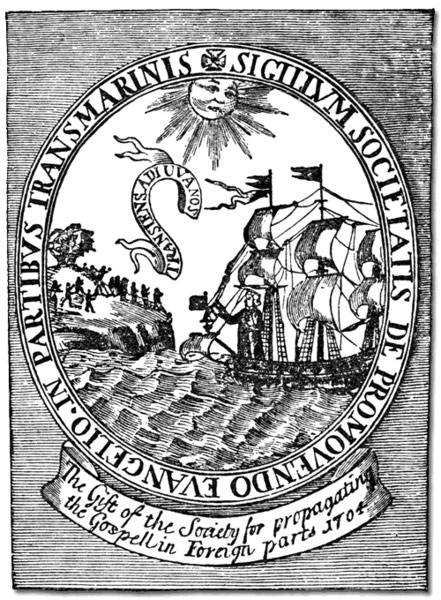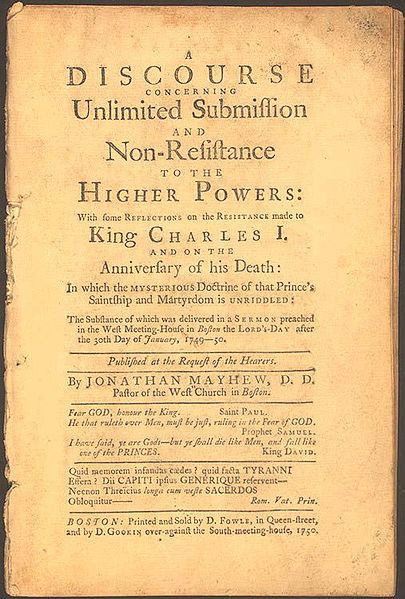 It can be said that the American War for Independence was won more with words than with weapons. As they say, the pen is mightier than the sword. That adage is exemplified in the writings of Jonathan Mayhew, a Boston minister who is famous for having coined the phrase “No taxation without representation.”
It can be said that the American War for Independence was won more with words than with weapons. As they say, the pen is mightier than the sword. That adage is exemplified in the writings of Jonathan Mayhew, a Boston minister who is famous for having coined the phrase “No taxation without representation.”
Early Life
Mayhew was born in 1720 on Martha’s Vineyard. He was a fifth generation descendent of Thomas Mayhew, one of the very first to arrive in the New World and settle on Martha’s Vineyard.
Jonathan Mayhew died in 1766, a decade before the first shot was fired in the Revolutionary War in 1776, but it would be difficult to imagine the quest for freedom would have ever began if it were not for the influence of this preacher’s sermons.
Life as an Intellectual
Young Jonathan was an intellectual from an early age. He graduated from Harvard in 1744 and then earned a Doctor of Divinity degree so that he could begin his chosen career as minister of his church. However, Mayhew barely survived the process of ordination because his religious views were so independent and liberal, few other ministers considered him to be an orthodox scholar of the Bible.
 In effect, Mayhew’s views on religion were more akin to that of the Unitarian tradition rather than to the Congregationalist fold in which was a member. He espoused a religious practice largely free of the dogma and ritual of more conservative churches.
In effect, Mayhew’s views on religion were more akin to that of the Unitarian tradition rather than to the Congregationalist fold in which was a member. He espoused a religious practice largely free of the dogma and ritual of more conservative churches.
Mayhew also had passionate views about politics. Like his powerful belief in a religion that was free of dogma and too much authority, Mayhew naturally subscribed to a governmental system that was free from the shackles of higher, oppressive regimes, such as that of the British Monarchy.
Mayhew’s Writings
To this end, Mayhew wrote a number of publications (called sermons), one of the most notable of which was “Discourse Concerning Unlimited Submission.” This was a remarkable document that was much more than a diatribe against the contemporary policies of the British. It reached back to the times of the ancient conquest of Britain by the Romans, a time in which Mayhew notes that the British were extremely jealous of their own freedoms, and was driven to throw of their submission to Rome.
 Mayhew concludes that it is the fundamental nature of English-speaking people to be as free and independent as possible, but that the current British government had evolved into an empire that was as oppressive and dictatorial as that to which they were once subjugated by – the Romans.
Mayhew concludes that it is the fundamental nature of English-speaking people to be as free and independent as possible, but that the current British government had evolved into an empire that was as oppressive and dictatorial as that to which they were once subjugated by – the Romans.
The “Discourse Concerning Unlimited Submission” was a sensational success. It was published and read not only throughout the American colonies, but in European nations as well. It’s a brilliant and lucid argument for the natural rights of freedom of human beings. The Founding Fathers of the United States were greatly influenced by Mayhew’s philosophy of independence, and so this document was a critical reference to everything that followed, including the writing of the Declaration of Independence and the U.S. Constitution.
Jonathan Mayhew also worked vigorously in his ministry and church, and also spearheaded efforts to send teachers and ministers throughout the colonies to educate children.